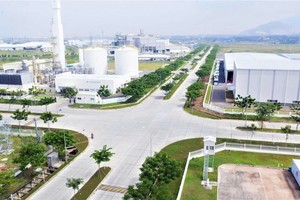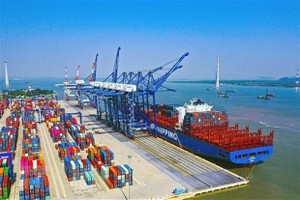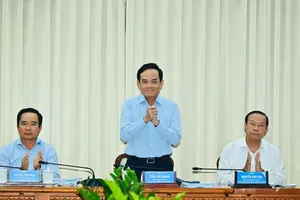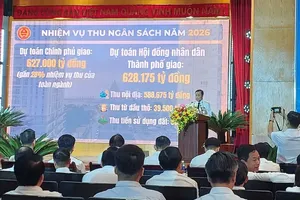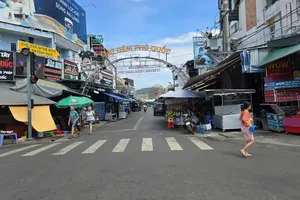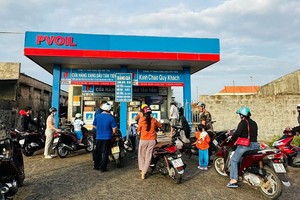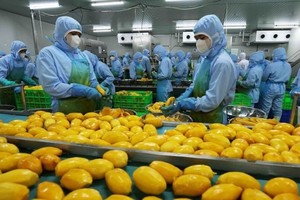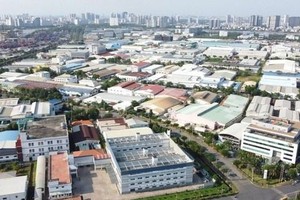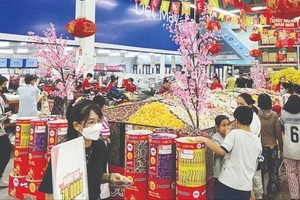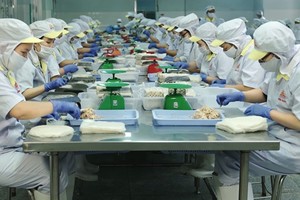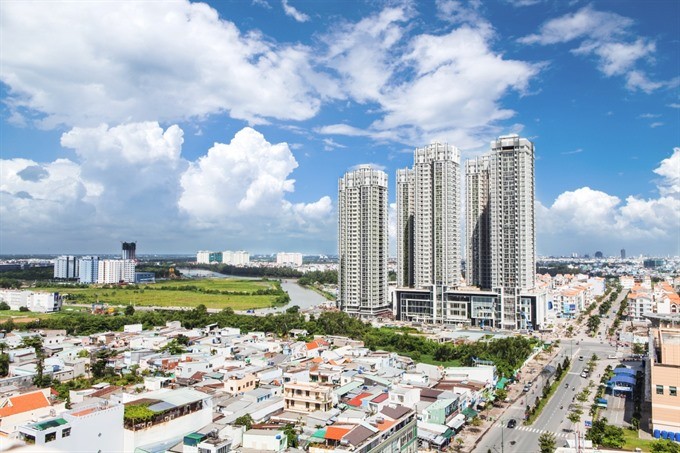
According to real estate company Savills Vietnam, over the past years, Asian investors, including Japanese ones, were only involved in commercial real estate like commercial centres, serviced apartments or office buildings. However, at present, these investors are increasing their activity in the residential segment due to the country’s young population and an increasing middle class, presenting an extremely attractive opportunity.
Presence of big investors
Shinichi Sakaki, deputy general director of the City Bureau, at Japan’s Ministry of Land, Infrastructure, Transport and Tourism, said the Japanese Government now has policies to support real estate developers promoting investment abroad. In addition, Japan has the experience of developing large-scale satellite towns, so it is trying to ‘export’ that technology abroad.
One of the projects attracting not only investors but also the governments of Vietnam and Japan is the cooperation agreement for the development of Nhat Tan – Noi Bai, aiming to build a smart city north of the Red River.
The project was signed between Vietnam’s BRG Group Joint Stock Company, Japan’s Sumitomo Corporation Asia and Oceania Group and the People’s Committee of Hanoi.
With total investment of nearly US$4.2 billion, this project is considered Japan’s largest foreign investment.
Prior to that, another large Japanese investor, Mitsubishi Corporation, had co-operated with Vietnamese property developer Bitexco, to develop 240 low-rise housing units and two high-rise condominiums among a total of more than 1,000 low-rise and 17 high-rise condominiums at Hanoi’s The Manor Central Park project.
Bitexco and Mitsubishi established a joint venture company, of which Bitexco holds a 55 percent stake and Mitsubishi holds the remaining 45 percent.
Recently, Nidec Group, one of the world’s leading hi-tech corporations and the second largest Japanese corporation on the Tokyo stock exchange (2017), joined forces with escalator firm Alpec to conquer the Vietnamese elevator market.
With many years of experience in the field of high technology as well as research and development of lifts, Nidec will send foreign experts to support Alpec in quality management, labour safety, as well as the research and development of elevator equipment. The cooperation between the two sides promises to launch modern and environmentally-friendly elevator products, in accordance with the aesthetics and economic conditions of the Vietnamese people.
Regarding potential cooperation between the two countries, Le Hoang Chau, president of the HCM City Real Estate Association (HoREA), said, in 2017, Japan replaced the Republic of Korea as the largest foreign investor in Vietnam in general, and in the real estate market in particular. Many Japanese enterprises have participated in the implementation of major urban infrastructure projects funded by the Japanese Government, such as Obayashi, Shimizu, Hitachi, Sumimoto Construction, Mitsui and Maeda.
In addition, there are enterprises that have invested in developing big projects such as Nomura Hai Phong Industrial Zone, or Idemitsu Kosan Company Limited’s investment in Nghi Son Refinery and Petrochemical. Especially, in the past five years, some Japanese investment funds and enterprises have cooperated with real estate companies in Vietnam in the form of buying shares, contributing to investment or lending for developing real estate projects in accordance with Japanese standards and suitable to consumers’ needs.
The potential for investment and business cooperation among real estate companies in Japan and Vietnam is very large, with 1,200 real estate development projects of Vietnamese enterprises in need of cooperation, joint ventures or teaming up with domestic and foreign businesses, especially Japanese ones.
Potential cooperation
The cooperation between Vietnam and Japan will bring benefits to both sides, especially in creating opportunities for Vietnamese consumers to access high quality Japanese housing products, according to Chau.
Meanwhile, regarding cooperation with Japanese units in the field of building management, Nguyen Quang Huy, deputy general director of Property and Management Company (PMC), said cooperation with Japanese businesses brought benefits such as giving motivation to develop service standards and customer service strategies in a Japanese style, improving the prestige and company’s brand name, and being able to improve the foundations of implementing management, training or improving the quality of human resources.
"However, we also face many challenges; the most fundamental difficulty is the different approaches between the two sides. Vietnamese people tend to focus on a short-term approach, expecting to see results quickly. Japanese people, on the other hand, appreciate the importance of long-term planning, so they start with the smallest things," Huy told Việt Nam News.
"For example, in the field of building management, they teach staff how to cut nails, wash toilets, walk and serve customers. Therefore, Vietnamese businesses intending to cooperate with Japan should also pay attention to differences in the approach and find ways to create a workforce that loves the job, accepting career development on a long-term basis rather than short-term,” he said.
According to the HoREA chairman, there is enormous opportunity for co-operation between HCM City and Japanese property developers and construction companies since the city now has some 1,200 projects, including infrastructure upgrades and beautifying works.
Speaking at a meeting with a delegation of executives from 40 Japanese companies, Chau said the projects had been undertaken by local firms who want to tie up with foreign partners.
Additionally, from 2018, the city was set to implement the National Assembly’s resolution No54 on special mechanisms and policies, which would give it almost complete autonomy in deciding and awarding projects.
The city had already planned 21 programmes including removing houses along canals and giving itself a facelift.
He cited the examples of Tokyu investing in Hung Thinh Corporation and Becamex’s projects and Hankyu and Nishi Nippon Railways tying up with Nam Long, Misubishi Corporation with Phúc Khang Corporation, and ACA with Son Kim Land.
Concurring, Le Tran Kien, deputy director of the city’s Department of Construction, said the city aimed to relocate 20,000 people living along canals and in old apartments by 2020.
"Some 21,850 houses are located along canals and need to be moved, mostly in Districts 8, 4 and Binh Thanh," he said.
The city was considering ways to attract more foreign investment in public-private partnership projects (PPP), he said, adding that six PPP projects were underway to upgrade the city.
HCM City is now soliciting Japanese investment in a project to upgrade the Cau Dua Canal in District 4.
Speaking about the potential of co-operating with city-based companies, Keiji Kimura, chairman of J-CODE, said Vietnam was set for rapid modernisation like Japan achieved 50 years ago.
So Japanese companies would like to share their experience with HCM City partners in handling problems like traffic jams and pollution, he said.
They were committed to apply modern technologies to develop HCM City’s infrastructure, he assured.



